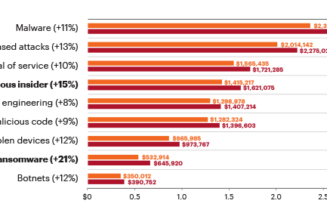As we head towards the end of women’s month, ITNA continues to celebrate the women who have been inspiring the next generation and bridging the current gap in tech workspace.
ITNA’s Jenna Delport chatted to Ailyssa Pretorius, Regional GM of Uber Eats South Africa and Kenya about what it takes to make it as a woman in tech-focused industries. Here’s what transpired:
What is your typical day like? Does that even exist for you?
Two days are never the same at Uber Eats. As the Regional General Manager for Uber Eats South Africa and Kenya, my days range from working with the team to solve tactical problems, to virtual meeting with partners to understand what opportunities we can mutually unlock for growth.
/* custom css */
.tdi_3_4f5.td-a-rec-img{ text-align: left; }.tdi_3_4f5.td-a-rec-img img{ margin: 0 auto 0 0; }
As a mom, typically, my day starts very early. Once she’s settled, I am able to catch up with emails (being part of a global organisation makes the challenge of inbox zero particularly tough), availing myself to the team to help with any problems they are facing, and thinking through the execution of our key priorities.
Pre-COVID, I was traveling often but with the new normal, I am on calls which take the most time in my calendar. One of the things I love the most about working for Uber Eats is the flexibility that it offers me. As a mom, switching to work mode requires a lot of juggling but I have learnt the art of balancing my career and family.
How does it feel to be a woman in a male-dominated field?
It’s no secret that women are very much underrepresented in the tech industry but companies like Uber and Uber Eats have allowed women to enter a traditionally male-dominated industry and have contributed to this shift by championing equality and creating an inclusive environment.
Some people still have the perception that certain jobs are too manly or too feminine but more and more women are changing this narrative. Our Uber community is made up of diverse, creative, and bright women that we’re proud to stand by every day. We are committed to creating economic opportunities for females, whether it be for drivers or employees, and we value the growth and advancement of women. We will continue to build a strong community of women and allies to share knowledge, provide access to leadership and mentoring, and attract and retain top talent.
What kind of challenges or barriers to entry do women face in the tech industry, especially in South Africa? Is there one thing you would like to see changed?
The gender disparity in leadership roles, especially in the technology field is an issue that continues to persist. Women currently hold 19% of tech-related jobs at the top 10 global tech companies, relative to men who hold 81%. In leadership positions at these global tech giants, women make up 28%, with men representing 72%. These stats are extremely worrying and a clear sign that more needs to be done.
The numbers matter and we can all do more to, but they’re only a starting point; a commitment to diversity and inclusion has to run much deeper. This change will not drive itself, it is each and every one of us amplifying our voices and support for each other.
Helping women develop personally and professionally is extremely important and I would love to see more companies champion policies and support of equal rights causes, which I believe includes working with male champions.
Companies like Uber are doing what they can to help attract, retain, and promote more women in the tech industry. This is done by Uber placing a lot of focus on creating employment opportunities and promoting the advancement of women through our network, access to leadership, professional development, and peer mentoring programs.
If other tech industries follow suit and work toward maintaining equal opportunity and inclusion throughout the employee culture and policies then we can definitely start to see a difference.
How has the IT sector changed throughout your working career, in terms of greater gender equality?
Over the years, there has definitely been an increase in the number of women who hold leadership titles. However, gender stereotypes still play a role in society and trying to change those stereotypes requires everyone’s involvement, which includes both men and women. It is clear that companies are starting to realize the value and the power of diversity and are proud to offer equal earning opportunities across the globe regardless of gender.
Speaking from an Uber perspective, our commitment to working toward equal opportunity and inclusion is also woven throughout our employee culture and policies. From our corporate offices to our driver-partners across the globe, diversity is one of our greatest assets. That’s why we’re doing everything we can to increase D&I in our talent pipeline, create a global culture that celebrates differences, and provide every employee and every partner the resources and support they need to grow, thrive, and succeed.
Each company in the IT sector needs to take responsibility and ensure they play a role to build a world that not only understands diversity and inclusion but actively celebrates it.
What advice would you give to women who are looking to take on the world of tech?
This year, Women’s Month is themed Generation Equality and realising Women’s Rights for an Equal Future. The theme is very fitting for the transformation that the world of tech is currently undergoing and it demonstrates the important role that women are playing in the tech industry.
While Women’s Month is coming to an end, it is important that we continue to empower and embrace such women even after this month. While the Science, Technology, Engineering and Mathematics (STEM) industry is predominantly male-led, there are multiple powerful and educated women who have and continue to pave the way in the fourth industrial revolution.
Each new day comes with its challenges but the most important thing to do is always stay authentic to yourself no matter the situation.










